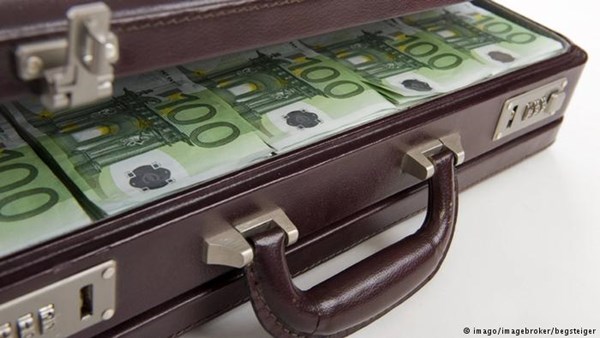Banks of Cyprus allow Russians to withdraw funds from frozen accounts
Cypriot banks froze the accounts of Russians on the US’s Specially Designated Nationals and Blocked Persons (SDN) sanction list, but the account owners were also permitted to transfer funds to their own accounts in Russia, reports Russian RBC news agency, citing Costas Demetriades, Managing Director of the Cypriot consulting firm B2B Lateral Thinking Solutions, and confirmed by Paragon Advice Group partner Alexander Zakharov. “As far as I know, unlike Switzerland, the Cypriot banks released the funds,” the lawyer told RBC.
Demetriades noted that he does not have specific information on the frozen accounts of any persons on the SDN list. However, an RBC writes, citing a source close to one of the major Cypriot banks, that the Russian entities from the list had been given authorization to close their account and withdraw the funds.
In light of US sanctions, Cypriot banks have advised their Russian clients to carry out transactions in currencies other than the US dollar, because dollar transactions could cause problems with American correspondent accounts, Demetriades said.
The Ministry of Finance of Cyprus was unable to confirm whether specific Russians’ accounts had been frozen, citing bank-client confidentiality. The department emphasized that banks have to come to terms with the new sanction landscape following the US’s passing of the Countering America’s Adversaries Through Sanctions Act (CAATSA). “As far as we understand, Cypriot banks have really been paying attention to the fact that, by having relations with entities from the American SDN list, they will inevitably expose themselves to the risk of secondary sanctions according to CAATSA,” said a Cypriot Finance Ministry representative, as quoted by RBC.
In a report on opposing illicit financial flows related to Russia, published in August, the US Treasury Department reported that the bank accounts of Oleg Deripaska and Viktor Vekselberg in Cyprus had been frozen, after the two Russians were included on the SDN list on April 6. A spokesperson from Vekselberg’s Renova group responded at the time that the oligarch had no personal accounts in Cyprus, and that affiliated structures did not keep any significant funds in accounts with Cypriot banks. No response was received from representatives of Deripaska.
If one of the Russians, such as Vekselberg, had been keeping money in Cyprus through affiliated companies, the amounts were not large, and the accounts are managed by authorized representatives, who are usually the beneficiaries of these companies, and so despite sanctions, normally nothing is stopping a Cypriot bank from authorizing the withdrawal of funds, explained Sergey Nesterenko, senior adviser at Hill Consulting.
The CAATSA law, which was signed by US President Donald Trump in August 2017, changed playing field with respect to the risk of sanctions for Russian businesses and their counterparts. Banks from all countries, even those outside of US jurisdiction, are now forced to avoid the Russians on the SDN list, otherwise they risk falling under so-called secondary sanctions. The Russian oligarchs on the list have become “radioactive”, in the sense that anyone they touch is at risk of secondary US sanctions, said US Deputy Treasury Secretary Sigal Mandelker at a Senate hearing on August 21.
Due to the CAATSA, Veselberg’s assets “have been frozen in several jurisdictions”, said Marshall Billingslea, Assistant Secretary for Terrorist Financing in the US Treasury Department, at a hearing of the US House of Representatives on September13. Notably, Swiss banks have frozen roughly 2 billion francs of Vekselberg’s funds ($2.07 billion), an action which Vekselberg intends to challenge in court.
The US government has conducted a special operation with Cyprus. In May 2018, US Treasury representatives traveled to the island, and Billingslea met with the leaders of the Central Bank of Cyprus. The central bank later summoned the leaders of the other banks, and advised them to pay special attention to the accounts of the Russian entities and companies on the US and EU sanctions lists, and to take steps against them. After the US officials’ visit, the Cyprus Securities and Exchange Commission advised banks not to initiate any business relations with SDN entities, and to consider the advisability of freezing the accounts of current clients from the SDN list. Similar recommendations were made by the Cyprus Bar Association.
According to the Central Bank of Cyprus, 33 banks are currently registered on the island, the largest being Bank of Cyprus, Cooperative Central Bank, Hellenic Bank, Alpha Bank Cyprus, and Eurobank Cyprus. The largest bank, Bank of Cyprus, announced that it will not take on any new clients who feature on the SDN list, and will generally freeze the assets of such entities, if they are existing clients.
